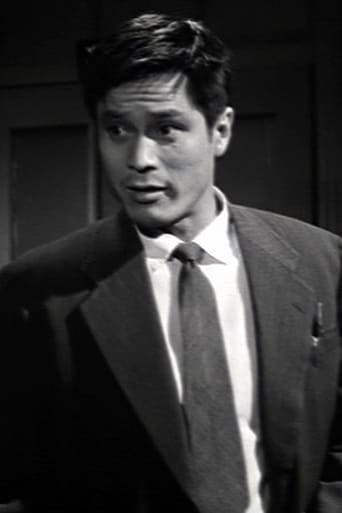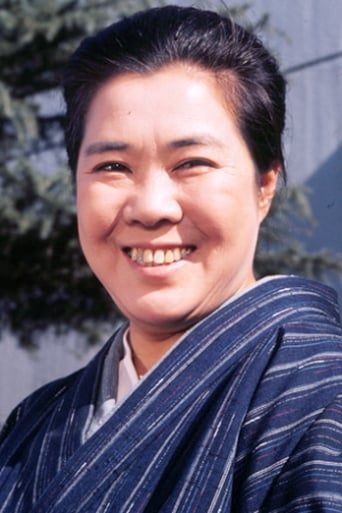Spoonatects
Am i the only one who thinks........Average?
Breakinger
A Brilliant Conflict
Cissy Évelyne
It really made me laugh, but for some moments I was tearing up because I could relate so much.
Roxie
The thing I enjoyed most about the film is the fact that it doesn't shy away from being a super-sized-cliche;
chaos-rampant
Suzuki doesn't have a minute to spare in what Nikkatsu probably intended as another flipside programmer for their double-bills. He has to get things going fast so we get a procession walking through a sweeping panorama of purpleorange skies and we get flashes of a brief swordfight and then someone is shouting "Bring me back my wife Oshige!!" and we cut to three years later. General Suzuki knows what he's doing though, Nikkatsu wants a potboiler from him and he'll give them what they want except it's going to be his way. He leaves the mass of the movie to battle it out in a field as two rival yakuza factions rival for control of the building of a dockyard, the usual ninkyo eiga tropes take place there, yakuzas club each other to death in shouty overactivity and among them stands the noble yakuza who wants to do good and falls in love with a shy geisha (we're in Toei territory here, the kind of film that made Koji Tsuruta and Ken Takakura huge stars in 60's Japan, before Fukasaku rolled in with his anarchic yakuza fiends who had nothing noble about them), while he sends the rest of the movie on a flanking march through scrubby oak and thorny undergrowth deep in the rear.When the flank catches up with the rest of the movie, we're among obviously artificial mounds of snow near a train station exchanging sword blows with a mysterious figure dressed in black suit and cape like a villain escaped from a Nemuri Kyoshiro movie, and we then discover exactly whose wife Oshige really is and the movie explodes with genuine emotion. For my taste, rebellious/frustrated Suzuki of subsequent movies exchanged the iron discipline of a strict genre movie for something that looked impressive but often meandered directionless with nothing to do, and while most critics are looking at the obviously stylized and "artsy" of Branded to Kill for their praise, Suzuki was doing some of his best work at around this point. Hollywood very rarely saw film-making of this quality in the early 60's.
josephbleazard
I must back up the previous reviewer. This is easily one of Suzuki's best pictures and deserves a much wider audience. At the moment I am writing this it has only 1 IMDb comment - there should be essays and theses on this piece. This is a B movie but one where Suzuki enjoyed a freer rein than in others I have seen. He was also blessed with a charismatic lead and supporting characters full of the deviance he loved to explore.The film itself is a frenetic exploration of modernity and corruption and the collapse of codes of honour in the face of commerce. Add to this gratuitous action and a love story told with a kind of melodramatic fury that stays with me today, despite the fact that it only takes up about 10 minutes of the films narrative.This film is frantic at only 90 minutes long. Suzuki threw the pot the kettle the sink and even the camera at this film. And he caught it. I don't know what that means. I don't know what this film means. But if you like Suzuki watch it and piece it together and come to appreciate just how grand a scope a cinematic master can encompass in a 90 minute action epic.
allenrogerj
Before Suzuki got fed up with making them he was a master of the B-movie and this is a superb example. Set in early twentieth-century Japan, it is a rip-roaring all-purpose historical action picture. Our hero, Kikuju, a yakuza, runs off to Tokyo with his master's proposed bride on the way to her wedding and marries her, leaving a few elegantly-killed corpses behind. He works for corrupt building contractors- the normal methods of getting and keeping a contract are gang fights, blackmail and bribery. An assassin from his old gang is looking for him. Add to that: trade unionism, big business, a tattooed bandit-geisha femme fatale, an ex-yakuza going straight, a great detective in love with our hero's wife, sword fights and gun fights, loyalty and treachery, weeping and all-purpose tragedy, clashes between duty and honour, superb settings, extra-ordinary camera work, including beautiful shots that reflect Suzuki's later obsessions and all of it in less than ninety minutes. What more could you want?


